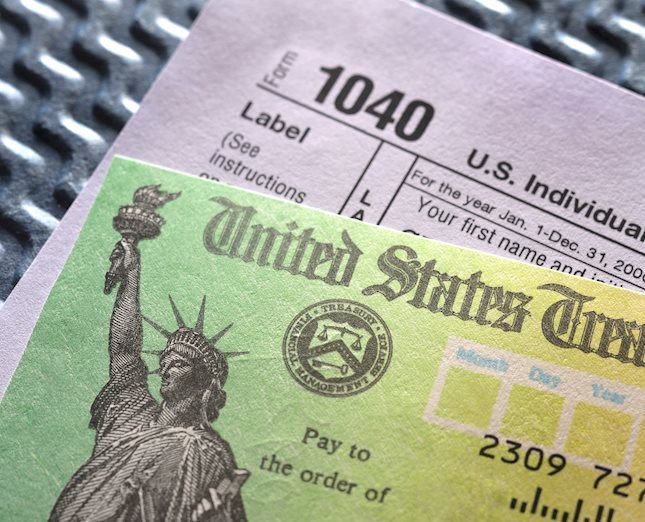- Pound Sterling has surrendered their entire gains and has dropped back into the woods.
- United Kingdom’s inflation is expected to soften as producers have cut prices at factory gates.
- The Bank of England might continue raising interest rates as the 2% target remains far.
The Pound Sterling (GBP) has fallen back below the round-level resistance of 1.3100 as uncertainty ahead of the United Kingdom’s inflation data has increased again. The GBP/USD pair struggles in finding a key trigger and has been oscillating near 1.3100. The current volatility squeeze is expected to be followed by an explosion once inflation data is published on Wednesday. UK producer prices have recently eased, as did household demand for big-ticket items, but inflation for consumers has proven to be more persistent than initially expected.
The consequences of the United Kingdom's higher inflation have been widening their scope and the impact of the drop in sales of big-ticket items and the housing sector is expanding to labor market conditions. Wages might fail in maintaining their steady pace and the employment generation process is likely to slow as firms are postponing their expansion plans to avoid higher interest-payment obligations.
Daily Digest Market Movers: Pound Sterling surrenders gains amid cautious market mood
- Pound Sterling has faced stiff resistance around 1.3100 as the upcoming United Kingdom inflation data hogs the limelight.
- Market expectations show that June’s monthly inflation grew at a pace of 0.4%, lower than the 0.7% increase seen in May. Annual headline inflation is expected to decelerate to 8.2% from 8.7% a month earlier.
- The core Consumer Price Index, which strips out the more-volatile categories of food and energy, has been a troublemaker for Bank of England policymakers due to its stubbornness. The measure is expected to remain steady at fresh highs of 7.1%.
- Inflation in the British economy has been fueled by labor shortages and 45-year-high food inflation.
- Food inflation is expected to soften as producers have cut prices for the first time in more than three years after cost pressures have started to relent, according to a survey from Lloyds Bank reported by The Times.
- Apart from consumer prices, investors will focus on Producer Price Index (PPI) figures. Investors should note that UK Finance Minister Jeremy Hunt was in discussions with industry regulators to stop overcharging prices.
- Producer prices are expected to remain extremely soft, according to market expectations, adding to evidence of easing price pressures in the pipeline.
- In spite of the deceleration in factory prices, the Bank of England (BoE) Governor Andrew Bailey said the bank will continue hiking interest rates by a wide margin.
- UK inflation has remained extremely persistent, increasing the chances of further policy tightening by the BoE and heavily weighing on economic prospects.
- A quarterly survey compiled by Deloitte showed that top executives in UK firms expect a slowdown in fresh employment and wage hikes.
- Cooling labor market conditions would be welcomed by BoE policymakers as consumer inflation expectations would likely ease. Still, the economic outlook would also worsen.
- The overall market mood is quite upbeat amid a decent appeal for risk-perceived assets.
- The US Dollar Index (DXY) edged down while attempting to sustain an auction above the psychological resistance of 100.00.
- Investors are anticipating a volatile action in the US Dollar ahead of the release of the United States Retail Sales data for June, which will be published at 12:30 GMT.
- While higher interest rates by the Federal Reserve (Fed) have propelled fears of bleak economic prospects, US Treasury Secretary Janet Yellen said on Monday that the economy is making good progress in bringing inflation down and she doesn’t expect a recession, Bloomberg reports.
Technical Analysis: Pound Sterling turns volatile below1.3100
Pound Sterling is still testing its strength in the breakout of the Rising Channel pattern formed on the daily chart by a marginal correction. A breakout of this pattern indicates immense strength in the upside momentum. Upward-sloping short-to-long-term daily Exponential Moving Averages (EMAs) also indicate firmness for Pound Sterling bulls.
Momentum oscillators are in the bullish trajectory, showing no signs of divergence or any evidence of an oversold situation.
BoE FAQs
What does the Bank of England do and how does it impact the Pound?
The Bank of England (BoE) decides monetary policy for the United Kingdom. Its primary goal is to achieve ‘price stability’, or a steady inflation rate of 2%. Its tool for achieving this is via the adjustment of base lending rates. The BoE sets the rate at which it lends to commercial banks and banks lend to each other, determining the level of interest rates in the economy overall. This also impacts the value of the Pound Sterling (GBP).
How does the Bank of England’s monetary policy influence Sterling?
When inflation is above the Bank of England’s target it responds by raising interest rates, making it more expensive for people and businesses to access credit. This is positive for the Pound Sterling because higher interest rates make the UK a more attractive place for global investors to park their money. When inflation falls below target, it is a sign economic growth is slowing, and the BoE will consider lowering interest rates to cheapen credit in the hope businesses will borrow to invest in growth-generating projects – a negative for the Pound Sterling.
What is Quantitative Easing (QE) and how does it affect the Pound?
In extreme situations, the Bank of England can enact a policy called Quantitative Easing (QE). QE is the process by which the BoE substantially increases the flow of credit in a stuck financial system. QE is a last resort policy when lowering interest rates will not achieve the necessary result. The process of QE involves the BoE printing money to buy assets – usually government or AAA-rated corporate bonds – from banks and other financial institutions. QE usually results in a weaker Pound Sterling.
What is Quantitative tightening (QT) and how does it affect the Pound Sterling?
Quantitative tightening (QT) is the reverse of QE, enacted when the economy is strengthening and inflation starts rising. Whilst in QE the Bank of England (BoE) purchases government and corporate bonds from financial institutions to encourage them to lend; in QT, the BoE stops buying more bonds, and stops reinvesting the principal maturing on the bonds it already holds. It is usually positive for the Pound Sterling.
Information on these pages contains forward-looking statements that involve risks and uncertainties. Markets and instruments profiled on this page are for informational purposes only and should not in any way come across as a recommendation to buy or sell in these assets. You should do your own thorough research before making any investment decisions. FXStreet does not in any way guarantee that this information is free from mistakes, errors, or material misstatements. It also does not guarantee that this information is of a timely nature. Investing in Open Markets involves a great deal of risk, including the loss of all or a portion of your investment, as well as emotional distress. All risks, losses and costs associated with investing, including total loss of principal, are your responsibility. The views and opinions expressed in this article are those of the authors and do not necessarily reflect the official policy or position of FXStreet nor its advertisers. The author will not be held responsible for information that is found at the end of links posted on this page.
If not otherwise explicitly mentioned in the body of the article, at the time of writing, the author has no position in any stock mentioned in this article and no business relationship with any company mentioned. The author has not received compensation for writing this article, other than from FXStreet.
FXStreet and the author do not provide personalized recommendations. The author makes no representations as to the accuracy, completeness, or suitability of this information. FXStreet and the author will not be liable for any errors, omissions or any losses, injuries or damages arising from this information and its display or use. Errors and omissions excepted.
The author and FXStreet are not registered investment advisors and nothing in this article is intended to be investment advice.
Recommended content
Editors’ Picks

AUD/USD holds gains near 0.6250 but upside appears limited
AUD/USD remains on the front-foot near 0.6250 following the previous day's good two-way price swings amid confusion over Trump's tariff plans. The Aussie, meanwhile, remain close to over a two-year low touched last week in the wake of the RBA's dovish shift, China's economic woes and US-China trade war fears.

USD/JPY: Bulls retain control above 158.00, Japanese intervention risks loom
USD/JPY is off multi-month top but stays firm above 158.00 in the Asian session on Tuesday. Doubts over the timing when the BoJ will hike rates again and a broad-based US Dollar rebound, following Monday's Trump tariffs speculation-led sell-off, keep the pair supported ahead of US jobs data.

Gold price struggles to lure buyers amid hawkish Fed, elevated bond yields
Gold price trades with a negative bias for the third straight day on Tuesday, though it lacks follow-through amid uncertainty over Trump's tariff plans. Moreover, the recent USD pullback from over a two-year high and geopolitical risks support the safe-haven XAU/USD.

Ripple's XRP eyes rally to new all-time high after 40% spike in open interest
Ripple's XRP trades near $2.40, up 1% on Monday following a 40% surge in its futures open interest. The surge could help the remittance-based token overcome the key resistance of a bullish pennant pattern.

Five fundamentals for the week: Nonfarm Payrolls to keep traders on edge in first full week of 2025 Premium
Did the US economy enjoy a strong finish to 2024? That is the question in the first full week of trading in 2025. The all-important NFP stand out, but a look at the Federal Reserve and the Chinese economy is also of interest.

Best Forex Brokers with Low Spreads
VERIFIED Low spreads are crucial for reducing trading costs. Explore top Forex brokers offering competitive spreads and high leverage. Compare options for EUR/USD, GBP/USD, USD/JPY, and Gold.